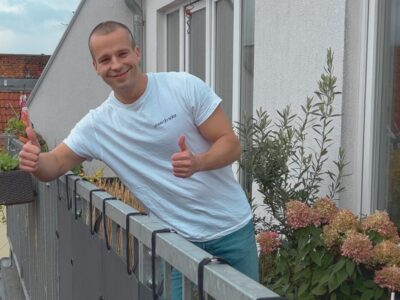The Cleveland Browns may not have racked up many first-place finishes during the NFL season in the 2000s, but the football team has scored several firsts in the environmental game in recent years.
In 2013, the Browns became — not just the first NFL team but — the first professional sports franchise to utilize a cutting-edge food waste system. The Grind2Energy system, built by InSinkErator, allowed the Browns to take food waste collected at its FirstEnergy Stadium and divert it from winding up in the landfill.
Critical to this process was a piece of machinery called an anaerobic digester. Operated by Quasar Energy Group at Ohio State University’s Ohio Agricultural Research and Development Center, the anaerobic digester can take the food scraps, which had been broken down into slurry, and transform them into biogas through a process that sometimes includes the addition of cow manure to decrease acidity and increase the methane. The biogas, consequently, can be used for fuel and energy and to create fertilizer for farming.
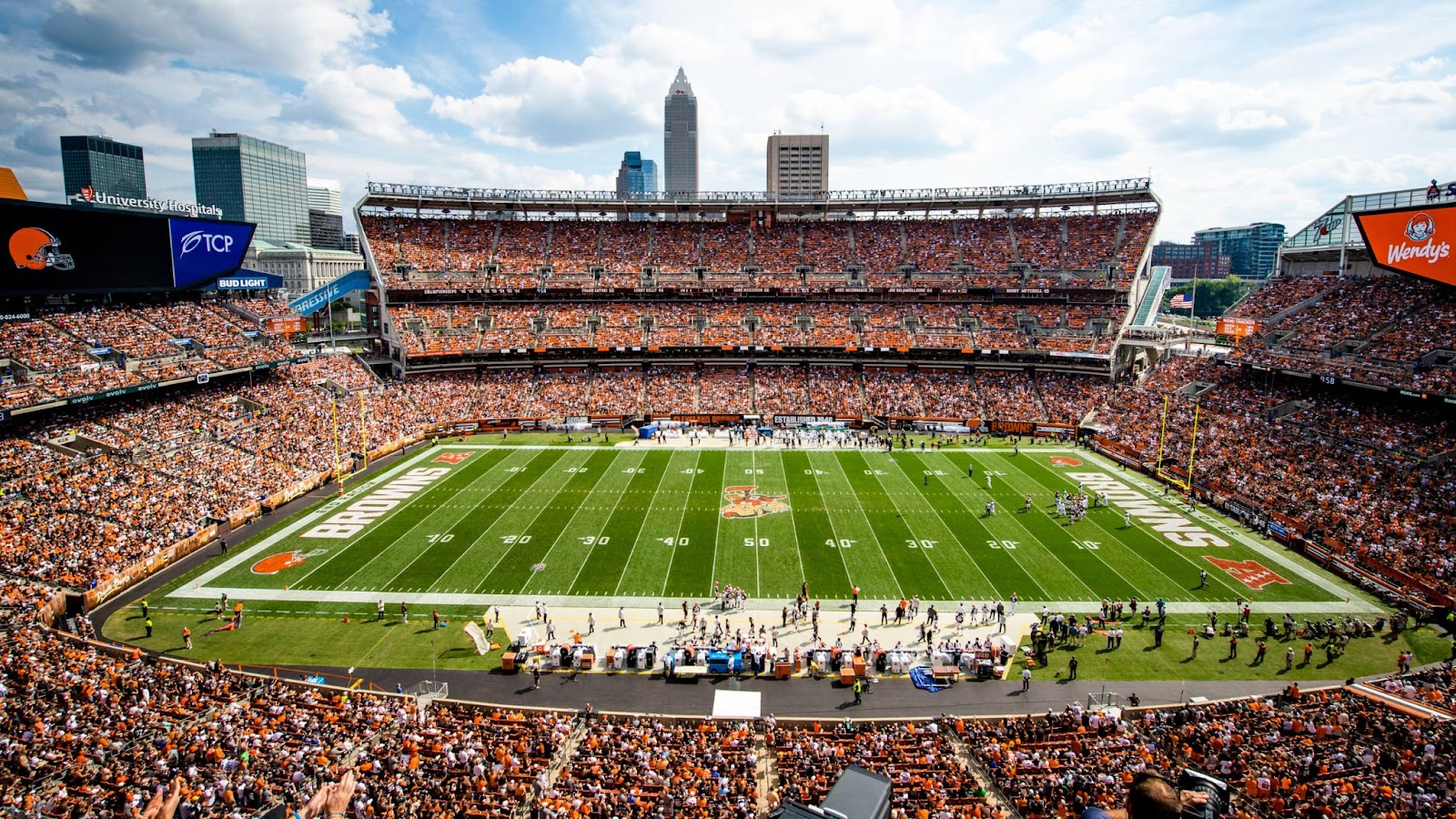
Photo Courtesy Cleveland Browns
The Grind2Energy system’s stats at Cleveland’s FirstEnergy Stadium add up to some impressive numbers. According to a press release, the program was estimated to divert around 35 tons of food waste from landfills annually and cut carbon dioxide emissions by 28,000 pounds yearly. It was expected to produce enough electricity to power a single-family home for a year and a half, enough natural gas to heat 32 homes for a whole month, and generate enough nutrients to cover three football fields with new crops.
“The idea that we can now transform food categorized as ‘waste’ into a source of renewable energy is truly a game changer,” Tim Ferry, InSinkErator president, stated in a statement.
“The Grind2Energy system is a sustainable solution for facilities like sporting arenas, grocery stores, hotels, and academic institutions, and, as seen at FirstEnergy Stadium, it has the potential to revolutionize the future of food waste.”
The Browns achieved another sustainability first in 2021 when they became the first sports team to sign up for the PureZero program, created by PureCycle Technologies — the Browns’ official plastic recycling partner. Through this process, cups from every home game get recycled and stripped of nearly all of their colors, contaminants, odors, food, and other contaminants and turned into ultra-pure recycled plastic that can be made, among other things, into new cups to stock the FirstEnergy’s concession stands in the future.
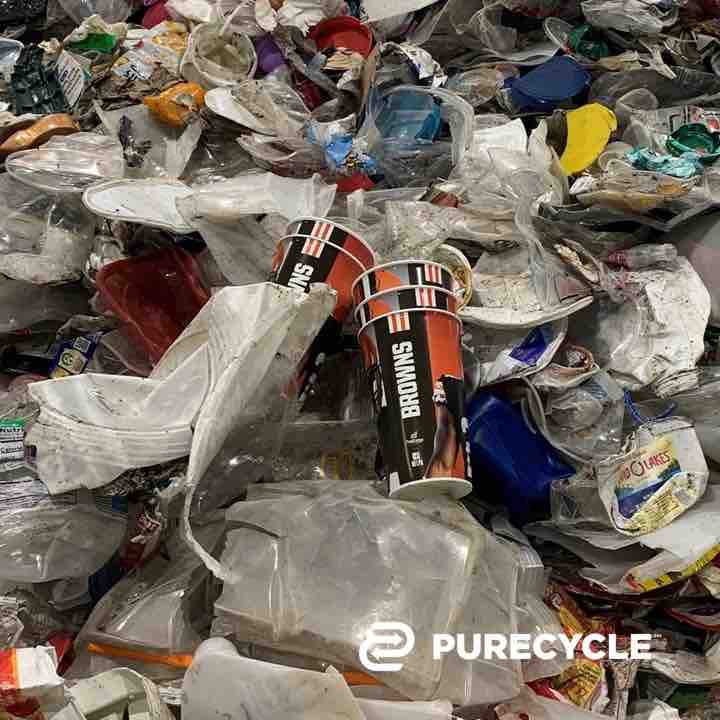
Photo Courtesy PureCycle Technologies
PureCycle and the Browns have teamed up on some less high-tech, more down-to-earth environmental projects. The kick-off of their PureZero program was launched on America Recycles Day in 2021, with the team and PureCycle participating in a Community Day of Action event. They also took part in the event again in 2022, volunteering in a litter cleanup
at a Cleveland area park while also sharing information about the benefits of recycling.
The Cleveland Browns, in fact, have had a long history of sustainability-oriented work, particularly when it comes to food issues.
For more than two decades, the team has worked with the Greater Cleveland Food Bank to help battle food insecurity in the Greater Cleveland area.
“It is support of partners like the Browns that lets us continue to meet the need for nutritious food,” Kristin Warzocha, president and CEO of Greater Cleveland Food Bank, said in an article on the Cleveland Browns website.
The Food Bank has been involved with numerous Browns events, including their training camp and the Dawg Pound Drive. The team has also provided significant investment in the Food Bank’s new state-of-the-art storage and distribution center.
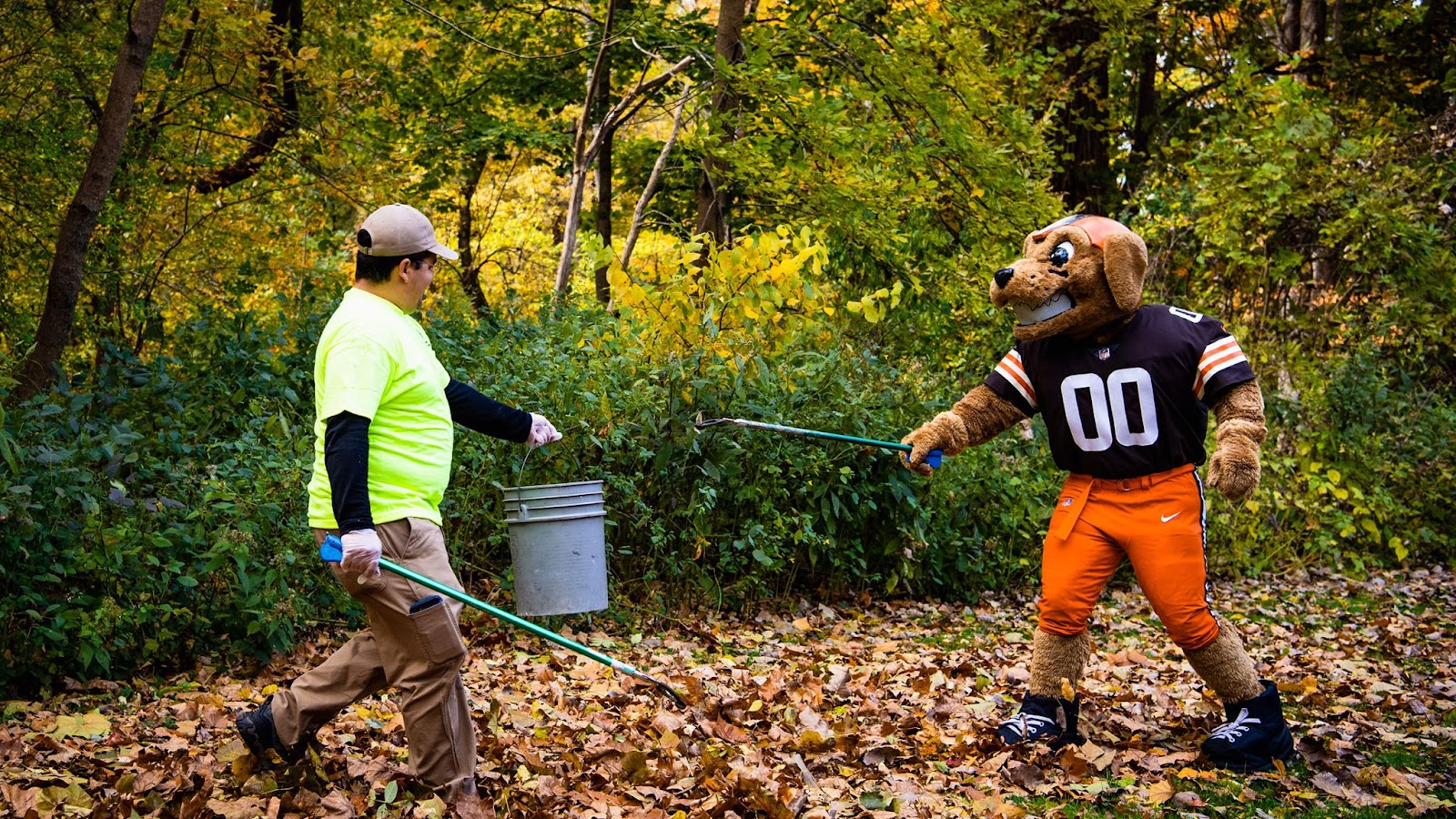
Photo Courtesy Cleveland Browns
However, the signature event is the annual Taste of the Browns fundraiser, which has raised more than $3 million since the initial Taste was held in 1999. The 2023 event brought in $350,000 from ticket sales, auctions, and donations, an increase from 2022’s $270,000. With each dollar raised representing enough money to fund three nutritious meals to the community, the proceeds from 2023’s event were enough to deliver more than 1 million meals.
Another significant community initiative the Browns have been doing for several years is the high school field restoration project as part of its “Browns Give Back program.”
Most of the renovation work has involved the installation of high-end Astroturf, which offers the eco-advantages of being low maintenance and not requiring as much water as grass fields.
One notable project was Shaw Stadium’s $7 million renovation in 2021. Originally built in 1923, it was once the home field for the Cleveland Rams in the late 1930s but had fallen into such disrepair that Shaw High School couldn’t play home games there — until the Browns stepped up to help make this field playable again.
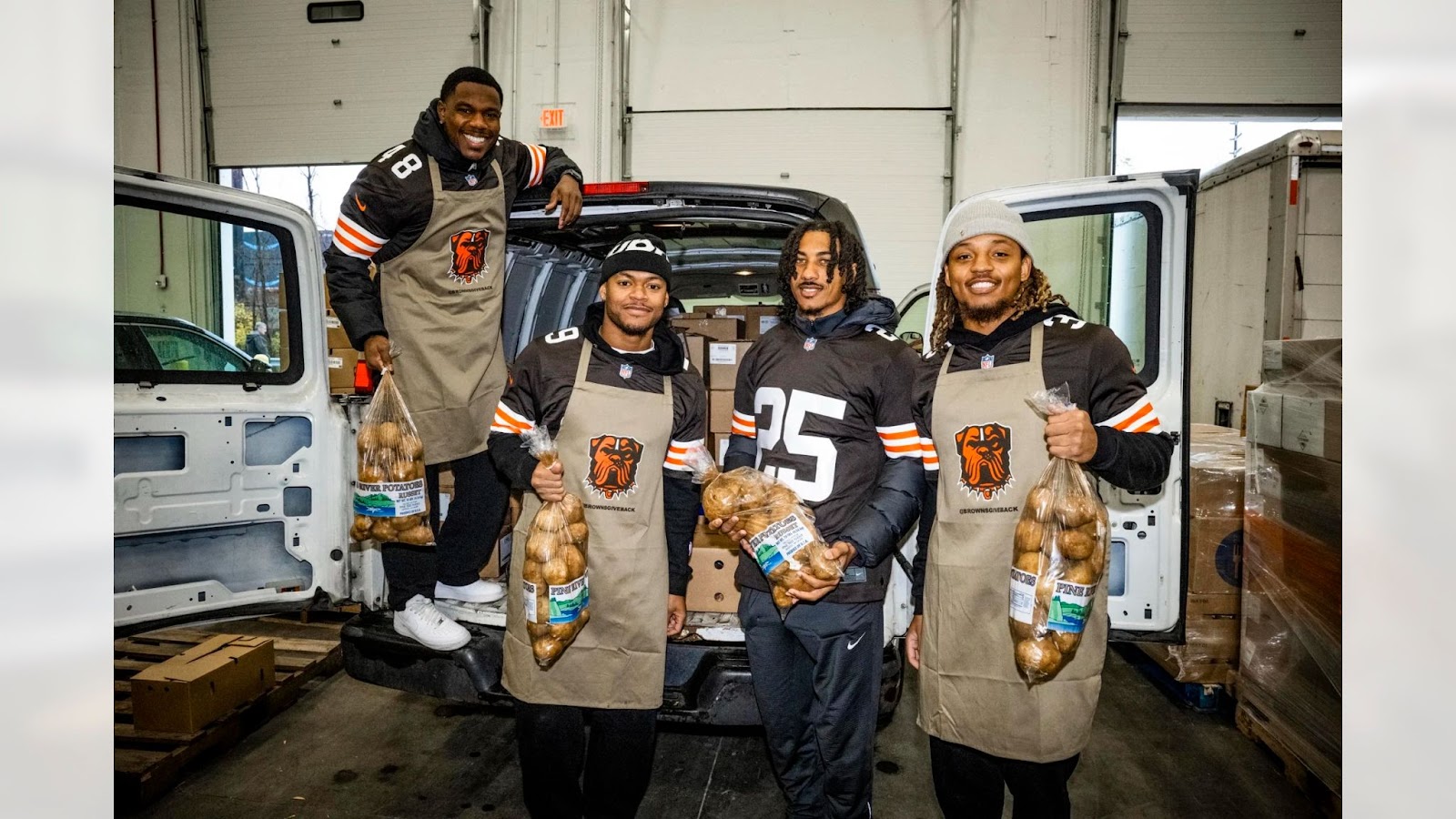
Photo Courtesy Matt Starkey/Cleveland Browns


